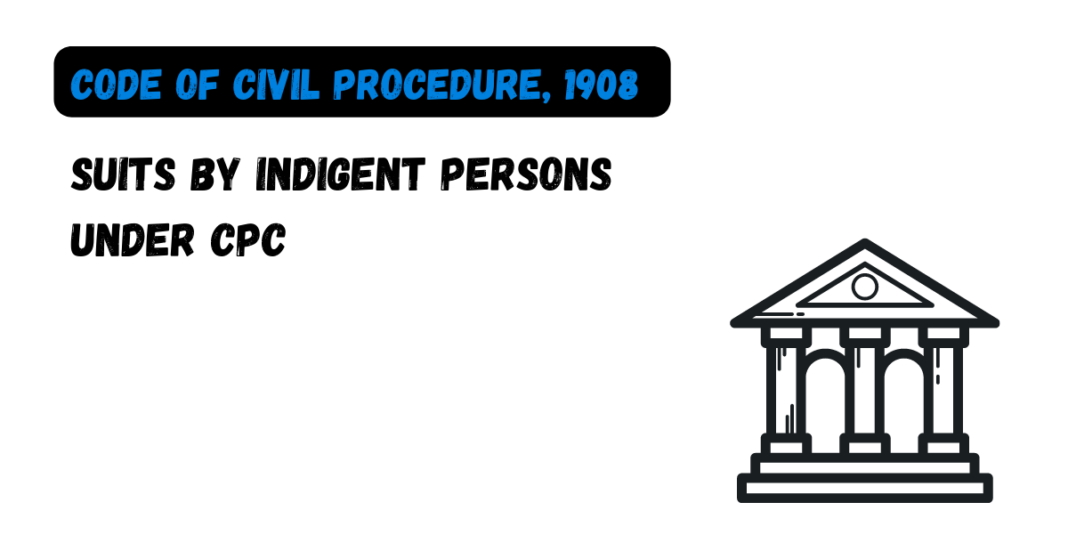Suits by indigent persons, also known as suits filed by paupers or suits filed in forma pauperis, are a provision under the Code of Civil Procedure (CPC) that allows individuals who are unable to afford the costs of litigation to file and pursue their legal claims without paying court fees.
Definition of an Indigent Person
An indigent person is someone who lacks sufficient means to pay the prescribed court fees and meet the expenses of the legal proceedings. The CPC recognizes that access to justice should not be restricted solely based on financial constraints.
Application for Permission to Sue as an Indigent Person
To initiate a suit as an indigent person, the plaintiff needs to file an application before the court seeking permission to sue without payment of court fees. The application must state the reasons for the inability to pay the fees and provide relevant details about the financial condition.
Criteria for Granting Permission
The court examines the application and considers various factors in determining whether to grant permission to sue as an indigent person. These factors may include the merits of the case, the financial status of the applicant, and whether the case has a reasonable chance of success.
Appointment of a Pleader
If permission is granted, the court may appoint a pleader (an advocate or legal representative) to assist the indigent person in presenting their case. The appointed pleader represents the indigent person and handles the legal proceedings on their behalf.
Waiver of Court Fees
Upon granting permission to sue as an indigent person, the court waives the requirement of paying court fees. This exemption allows the indigent person to proceed with the case without the financial burden of court fees.
Liability for Costs
In the event the indigent person succeeds in the case, the court may order the other party to pay the costs incurred by the indigent person, including court fees and other expenses. This ensures that the indigent person is not unfairly burdened by the costs of litigation if they are successful.
Dismissal for Abuse of Process
If it is found that an application for permission to sue as an indigent person was made with an ulterior motive or to abuse the process of the court, the court has the power to dismiss the application and require the payment of court fees.
The provision for suits by indigent persons aims to promote access to justice for individuals who are unable to bear the costs of litigation. It enables them to seek legal remedies without financial barriers. However, it is important to note that the court scrutinizes the applications for permission to sue as an indigent person to prevent misuse of the provision. The specific procedures and rules regarding suits by indigent persons may vary depending on the jurisdiction and the applicable laws. It is advisable to consult the relevant provisions of the CPC and seek legal advice to understand the detailed requirements and implications of suits by indigent persons in your specific jurisdiction.





